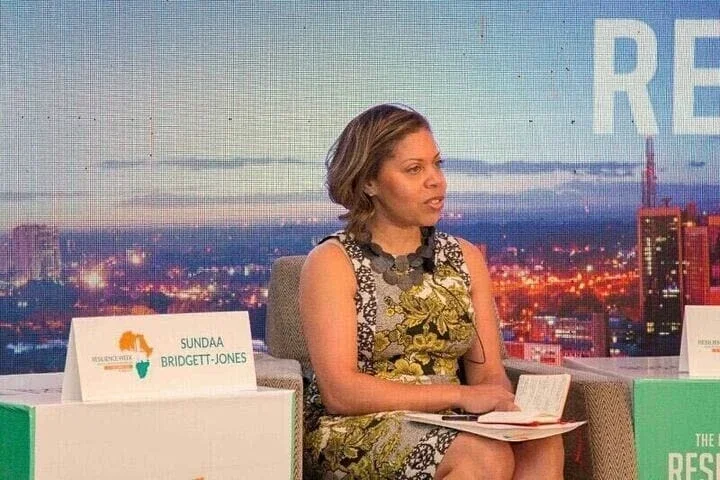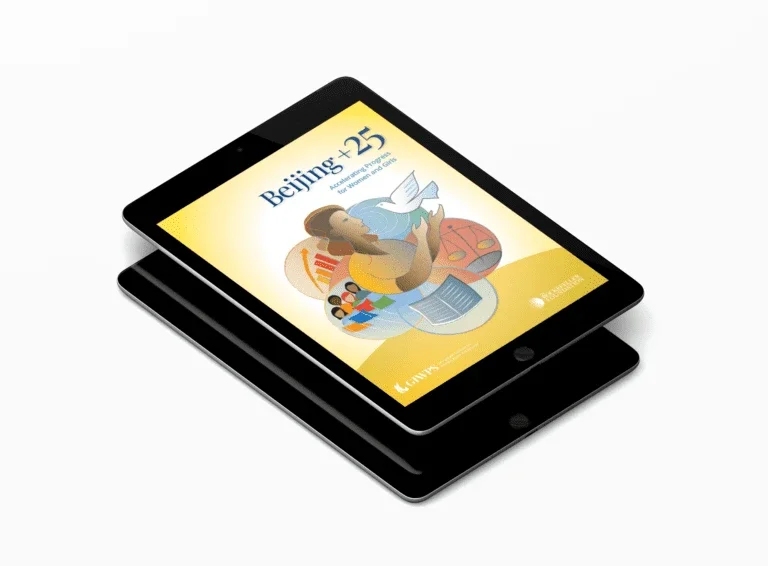How We at The Rockefeller Foundation Can Contribute
Covid-19, for all the sorrow it has brought, has also created this moment. What steps do we here at The Rockefeller Foundation take to seize it?

First, as a respected philanthropic organization that is more than a century old and values partnerships and convenings, the Foundation can help uplift and amplify the voices of new partners. The Algorithmic Justice League is one example of an organization looking deeply into racial justice and artificial intelligence and that the Foundation must continue to support. Others include grassroots organizations like Moms Rising or The Workers Lab.
Secondly, we can respond to the data as a call to action. If, by the numbers, we examine where the burden is routinely the heaviest—in terms of food insecurity, domestic violence, lack of any safety net—the picture is clear. Black and Latinx women are undeniably the people most in need. They’ve been trying to do the best with what they have, but they do not have enough. Let’s do a better job resourcing them.
And finally, we can beef up our listening capacities. My mother was a single parent with four children who became an entrepreneur, opening a 24-hour daycare center in our west Philadelphia home so she could support us and keep us close while allowing parents in need to work second or third shifts without worrying about their children. I learned important lessons from how she married love and determination.
One of those lessons was that when we try to define problems and solutions, we must include in those conversations the people we want to support. This means actively seeking alliances with partners who may be both less established and more willing to take risks. A study of organizations led by African Americans in December found that 60 percent of the 66 groups it surveyed had budgets of $500,000 or less and just 23 percent had reserves of 3 months or more. And even as the Latinx population in the United States has risen over the past decade to 18 percent, the share of philanthropic dollars going to Latinx issues has remained at about 1 percent, according to a study by Candid.
Putting the analyses of these groups at the center of our future plans is a way to create systems change.
The needs are severe and there is no time to waste. But in the midst of this, I feel optimism. I have worked for The Rockefeller Foundation for eight years. I have admired the way we surface innovations and take them to scale. The virus, though, has contributed to a shifting of themes. A healthy chunk of our work now, and the way we talk about it, must focus on people’s livelihoods and dignity. This human-centric approach emboldens us to think about race and gender in ways that we didn’t feel we could in the past.
Our aperture is now open wider. It can take in those previously largely in the shadows. As an African American woman and longtime activist for women’s rights who also works in this philanthropic space, that gives me great hope. But this moment won’t last forever. We need to take advantage of it now.
Sundaa Bridget-Jones is The Rockefeller Foundation’s Managing Director, Policy & Coalitions

 Report
ReportBeijing+25: Accelerating Progress for Women and Girls
A collaboration of The Rockefeller Foundation and The Georgetown Institute for Women, Peace and SecurityDownload PDF
#RFBreakthrough
Tune into #RFBreakthrough, a don’t-miss live stream series highlighting urgent and innovative discussions with thought leaders and industry experts.
- WEDNESDAY 9.16.2020
The Great Equalizer or Divider: Technology for Gender Justice and Women’s Empowerment
As the third episode in the #RFBreakthrough series, “The Great Equalizer or Divider: Technology for Gender Justice and Women’s Empowerment”, The Rockefeller Foundation will co-host a livestream discussion with Vital Voices on how we can use technology as a means to an end to achieve gender equity during the pandemic and beyond.
Related Updates

Climate Justice in the Time of Covid-19: 5 Lessons From Women and Girls Leading the Fight
Covid-19 is a health, economic and social crisis, but it also holds out an opportunity for the world to move forward into a more equitable and green recovery. Women climate leaders sounded notes of hope, solidarity, and urgency during a webinar convened by the Skoll World Forum in partnership with Connected Women Leaders and The […]
More